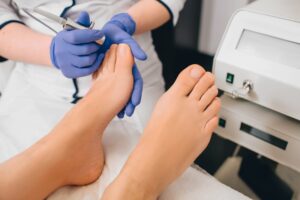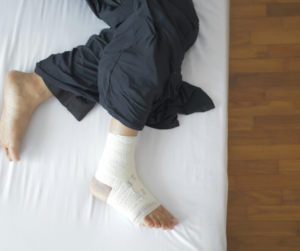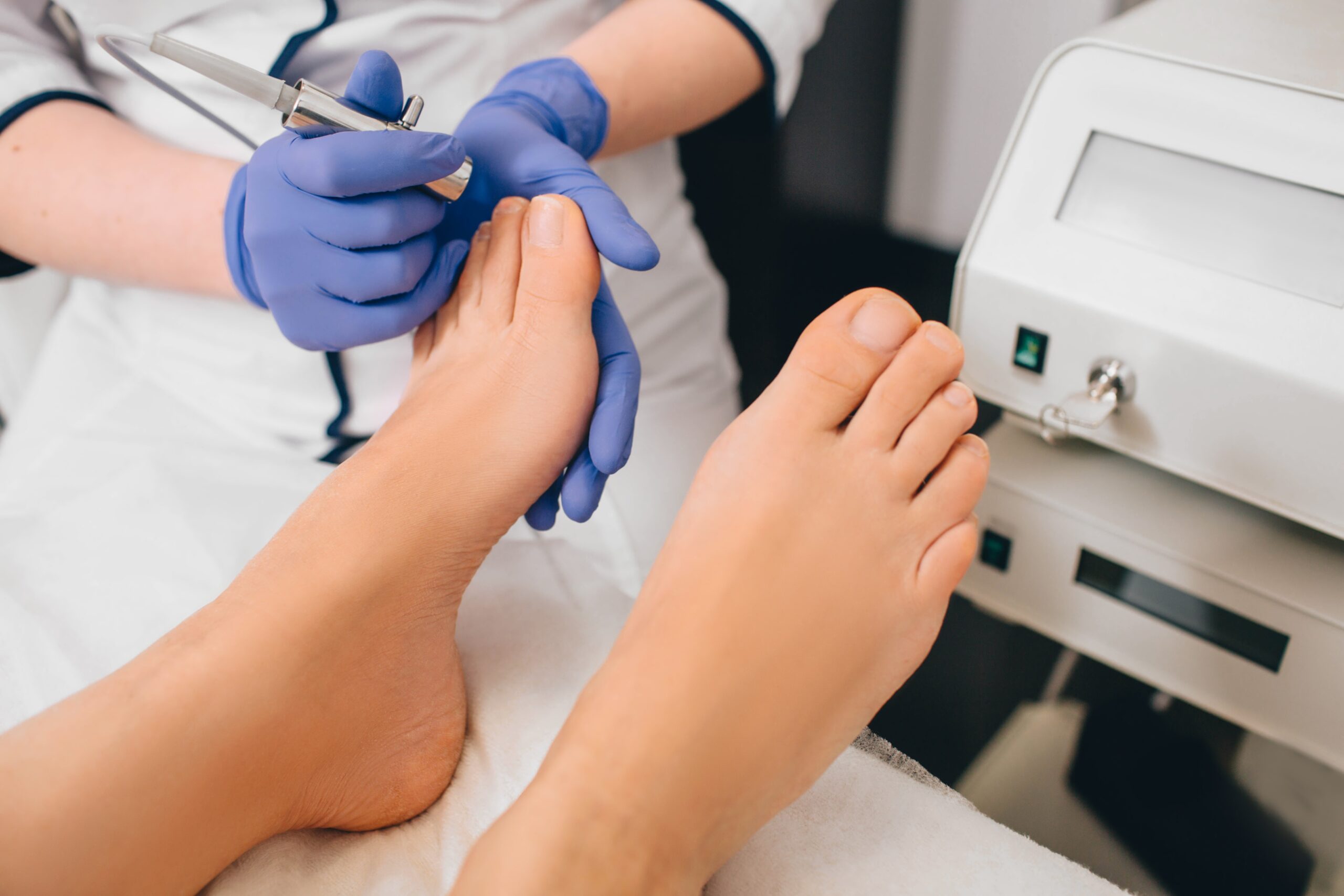 Did you know that over 30 million people in the United States are currently diagnosed with diabetes? As the number rises in our country, awareness is vital to the prevention and management of this disease. November is National Diabetes Awareness Month, and we would like to join podiatrists across the country in spreading vital information about the importance of proper diabetic foot care.
Did you know that over 30 million people in the United States are currently diagnosed with diabetes? As the number rises in our country, awareness is vital to the prevention and management of this disease. November is National Diabetes Awareness Month, and we would like to join podiatrists across the country in spreading vital information about the importance of proper diabetic foot care.
Diabetes and Your Feet
Diabetes affects millions of people each year and damages blood vessels in all parts of the body, including the feet. Consistently high or low blood sugar levels can cause changes to the skin, nails, and circulation of the body resulting in a decrease or loss of sensation in the extremities such as the arms and feet.
The peripheral nerves, or nerves that travel to the extremities, can prevent them from functioning properly. This type of nerve damage is known as peripheral neuropathy which is often permanent and affects over 60% of patients diagnosed with diabetes. Peripheral neuropathy begins in the feet and can spread to the legs, hands, and arms. This condition can affect a person’s ability to feel pain, temperature, or sensations and can hinder muscle control and functionality.
This condition does not occur overnight, but rather develops gradually over time. If you begin to notice the symptoms described below, please inform your doctor immediately as this condition can lead to more serious complications and result in the loss of a limb.
Symptoms
Common symptoms of peripheral neuropathy include the following:
- Burning sensation
- Changes in foot shape that lead to an increase in pressure in other areas
- Cracked skin
- Dry skin
- Increased sensitivity to touch
- Loss of balance
- Muscle weakness or loss of muscle tone
- Numbness or tingling
- Pain or discomfort, including sharp or sudden pain
Any change in sensation or functionality may be a symptom of peripheral neuropathy for those with diabetes and should be reported immediately to your doctor. It is important to note that the loss of feeling and sensation may cause injuries, sores, or infections to go unnoticed. Numbness may also lead to balance problems that can result in a fall and injury.
Treatment
Once a diabetic patient develops peripheral neuropathy, it is especially important to take proper care of the feet. Your podiatrist will diagnose your condition after a thorough physical examination and various tests such as a blood test or reflex test. Though there is no cure for diabetes or peripheral neuropathy, the goal of treatment is to slow the progression, maintain foot health, and decrease pain while improving your quality of life.
Treatment may center around keeping your blood sugar under control, increasing physical activity, and a healthy diet along with regular visits to your podiatrist. Symptoms can also be managed using medication or physical therapy.
Prevention
There are several things you can do to minimize your risk of developing diabetic peripheral neuropathy and its consequences. Some important preventative measures you can take include:
- Wash and thoroughly dry your feet (especially between the toes) on a regular basis.
- Inspect your feet daily. If you notice any redness, blisters, sores, cuts, or swelling, please contact your doctor.
- Keep your blood sugar under control.
- Use a mirror to examine the bottoms of your feet.
- Visit your podiatrist regularly for exams to help monitor your condition.
- Wear proper socks and footwear that fits appropriately.
If you cannot check your feet on your own, ask a friend or family member to help or use a mirror. You can also call our office to assist in proper foot care such as trimming nails or treating an ingrown nail. Our doctors and staff will work with your healthcare team to find the best course of treatment for your condition.
For more information on diabetes or peripheral neuropathy and our services, please contact Foot and Ankle Centers today.







